Kent Mitchell
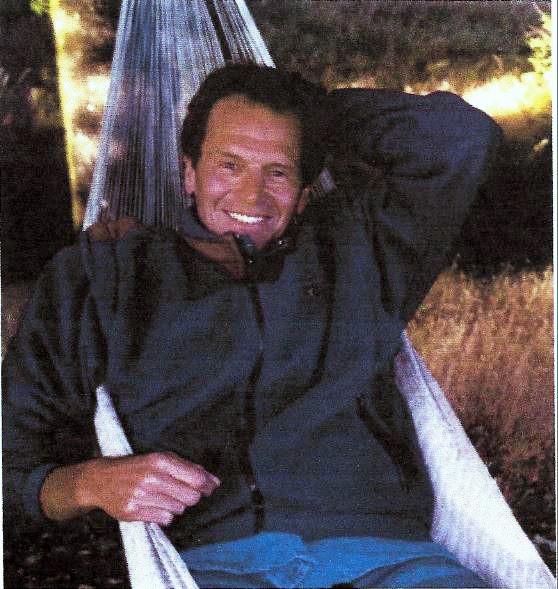
Edward Payson Ferry, a world class athlete and much-loved free spirit, passed away peacefully on September 18, 2023, in the house he built in Mill Valley, CA with a sweeping view of Mr Tamalpais.
Ed was born June 18, 1941, in Seattle to Edward Payson Ferry II, a naval Lt Commander stationed a the time in the Aleutian Islands, and Illis Harper Ferry, a member of a prominent Seattle family. Payson, as he was called then, joined brother, Pete, and sister, Illis, in their home in Lake City, overlooking Lake Washington with a forest behind the house to explore. When Ed was 3 years old, his father died. Pete, a talented athlete himself, became mentor and coach, encouraging his younger brother's obvious athletic gifts. Illis took on the responsibility for the teasing...a dynamic that characterized their close relationship ever after.

The Ferrys were travelers from the start: in 1660 Ed's forebears set sail from the British Isles to Springfield, MA. A few generations later William Montague Ferry continued the westward migration to Mackinac Island in Northern Michigan, as a missionary to the local Native Americans. Later, he and friends founded the settlement on Lake Michigan that became Grand Haven. Continuing west, his son, Edward Payson Ferry, headed to Utah where he became a successful investor in the silver mining industry. Edward Payson Ferry II, completed the journey across the continent when he arrived in Seattle. For their honeymoon, he and Illis sailed on a tramp steamer to Europe where they travelled for a year.
Ed attended Lakeside School in Seattle where he excelled in football, basketball, and track, earning the Athletic Cup as the most outstanding athlete in his class. Academically and behaviorally...not so meritorious. He was nearly expelled when he was caught doing doughnuts in a borrowed car on the baseball diamond. The headmaster relented and as Ed gratefully acknowledged, "My life would have been very different" if his initial impulse had prevailed. Next stop for Ed was Stanford University, attracted in no small part by the California sunshine. He dropped football and went out for crew, although his qualifying experience was exclusively in rowboats.
After one year his coach, Conn Findlay, already a two-time Olympic medalist, asked Ed to row with him. They rowed together for 4 years winning 4 National Championships, 5th place in 1962 World Championships, Gold in the 1963 Pan American Games, and finally, in an exciting race in which they beat the Russian team, they won the Gold Medal for pair with coxswain in the 1964 Olympics in Tokyo, Japan. After that it was on to Wharton School at University of Pennsylvania for an MBA.

After Wharton, Ed's life took a dramatic change and headed him in a direction that enriched his life ever after: he began to explore the world in a VW camper. He worked, saved money, dropped out and headed to Europe. With then wife Denise, he spent 2-1/2 years living in a camper, traveling in Europe, India, Afghanistan, and obscure places in between. An increasing alienation from the country of his birth (Kent State, Martin Luther King and Kennedy assassinations) kept him on the explorer's trail. The camper got shipped across the Indian Ocean to Africa. Ed fell in love with Kenya and its beautiful beaches and considered moving there. The last, long adventure was a harrowing drive from Nairobi to Cape Town, right through the civil war in Rhodesia (now Zimbabwe).
Finally, it was time to start considering a career that would suit his passion to be outdoors (minus the MBA's suit and tie) and on the move. He started Tent 'N Trek in the 70's, and for 16 years led high school students on summer camping tours of Europe: London to Greece and back to Amsterdam. He prided himself on always returning with exactly the same number of passengers that started the trip: no more, no less.
Off season, back in the states, Ed apprenticed himself to a lead carpenter to learn the trade. In the 1980's he began the career that brought him enormous satisfaction and pride for the rest of his life: that of a successful builder of spec homes, primarily in Mill Valley, CA, and always with spectacular views.
About the time he discovered his love of building he met the other love of his life, Brenda Smith. On a Saturday night in 1983 they were introduced by a good friend. Sunday morning, they met for breakfast and a run and from that moment on their life of adventure and profound love commenced. They shared the love of travel, joy in running, mountain biking, hiking, skiing, creative work, celebrating with friends and family and just about everything else. Brenda had a long career in the nutrition industry but joined Ed in his construction projects, collaborating on the overall deign and selecting the interior finishes. They married June 17, 2001, in a surprise wedding ceremony at the house they had just finished creating.
Ed Ferry will be remembered for his modesty, kindness, his irrepressible sense of playfulness and a laugh that could fill a room and not infrequently cause heads to turn in restaurants. His sometimes-quirky passions are well known: He loved music, particularly Elvis, and DJ'd The Ed Ferry Hour on MoonAlice Radio. His passion for daily outdoor baths, accompanied by his favorite beer and a TV screen for the News Hour and football games is well documented in photos. Despite his love of travel, he got lost regularly as friends can attest. He enjoyed his community service with Extra Food and Rebuilding Together. He was always in motion around the property, hammer or shovel or weed whacker in hand. He loved his family and wide circle of friends and was grateful every day for the fulfilling, adventurous, privileged life he led.
Comments by Kent Mitchell at Ed's Memorial
As Ed's coxswain during his amazing international rowing career, I am grateful to be asked to speak here to honor a man I have loved as a brother for over 60 years.
There is a short version of Ed's rowing success. At age 19, he was a novice on the Stanford crew first competing in the fall of 1960, with not many (if any) victories. After his first varsity season in 1961, his coach, Conn Findlay, eleven years Ed's senior and already a two-time Olympic gold and bronze medalist, tapped Ed to row with him at the US National Championships, where they won both the pair with and pair without coxswain events on the Schuylkill River in Philadelphia.
In 1962 they repeated as national champions in buffalo and also qualified for the Pan Am Games held in Sao Paulo, Brazil, in April of 1963, where they won the gold medal. They skipped the 1963 summer rowing season so Ed could fulfill his NROTC commitment to the Navy for the mandatory summer cruise.

In 1964, they lost a heart-breaking race to another US pair at the nationals, but won the Olympic trials three weeks later. Then on October 15, 1964, the same day Nikita Khrushchev was deposed by the Soviet Politburo, Ed, Conn, and I rowed down the Russian pair to win the gold medal at the Tokyo Olympic Games. Bad day for Russia. Then in 1965 Ed was inducted into the USRowing Hall of Fame and in 2005 he was inducted into the Stanford athletics hall of fame. Not bad for a guy who was a novice 4 years earlier.
That being said, I am often struck with how things could have gone wrong to spoil that day in Tokyo
What If:
-Ed had not quit frosh football after a week at Stanford and turned out for crew
-Ed had quit rowing with Conn after their first workout together when Conn told him "You'll have to row a lot harder than that if you hope to win with me."
-Ed had not once, but three times, agreed to 50-hour non-stop night and day drives cross-country with a 36-foot boat strapped to the roof of the car, no stops for meals, just tin cans with Cheerios, Ritz crackers, Hydrox cookies and whatever we could get to eat at brief gas stops , all for just an 8-minute race at the national championships in 1961, '62 and '64
-Ed had flicked it all in after exhaustion consumed him and he lost grip on his oar handle with just 20 strokes to go in the last 40 strokes of the 1962 World Championships, causing our boat to slip quickly from second to fifth place, leaving Ed with a stinging memory of his part in Conn's first international race in 7 years without a medal.
-Ed had not convinced the U.S. Navy to billet him at the Moffatt Field Naval Air Base in Mountain View for his first year of military service to our country as ensign/manager of the base bowling alley, enabling him to train with Conn in the last year before Tokyo.
-Ed had not recovered from a serious back injury sustained during an ill-advised 26-mile row from Redwood City to beyond the Golden Gate Bridge that sidelined him for weeks in the late spring of 1964
-Ed and Conn, with their boat virtually submersed beneath standing waves on an outgoing tide beneath the Golden Gate, had not managed to row up and over a wave crest to safety. We'd have gotten to Tokyo, but not the way we intended.
-Ed and Conn had given up after being defeated at the 1964 Nationals by another US boat which a week later was clobbered at the European Championships and did not even qualify for the 6-boat final
The answer to each of these 'what if' questions is that this story of Ed's meteoric rise from novice rower to best in the world in just four years would not be told if any of these things had happened.
In our opening heat in Tokyo we drew the European champions and 3 more of the European finalists that had beaten the crew that beat us 2 months earlier at our Nationals. No one expected much of us in that race.
Despite our ups and downs and the improbability of our prospects for success in Tokyo, a shocker, we won that heat, and qualified directly for the Olympic final.
As we stood in the shower afterwords, Conn said emphatically "You know, Ed, we can win this thing". Everything suddenly became tense, like tightening a string on a cello to the breaking point.
Five days later we were on the starting line again. Conn's oar missed the water completely on the first stroke. Thankfully, another crew false started, our next start was strong, and we were 250 strokes from the finish line of a four-year adventure.
During the middle thousand meters of the 2000-meter race, we camped in 2nd place, playing cat and mouse with the early leader Russia, and just 2/3rds of a length behind. I like to think we were the "cat", Russia the "mouse".
Then with just 40 strokes to go, still tracking Russia and holding off charging crews from France and Holland, it was "time to go".
As Yogi Berra would say, it was "déjà vu all over again", just like it was for us 2 years earlier at the World Championships.
In a calm but confident tone, Conn said "Ed, do you want to do it now." Ed responded "Okay", I said "Up 4", and this time it was different. Our stroke rate jumped to sprint levels. In less than 10 strokes we darted past an astonished Russia for the lead and built a small, but safe margin, over France and the Dutch.

With just 20 more strokes to go, I knew we had it, the gold was ours. I shouted "no sprint", our stroke rate went back down, and Ed always told me those two words were the "sweetest words he'd ever heard" and we glided across the line.

Stan Pocock, our Olympic coach, in his memoirs, describes the words "way enough" as the command universally given by coxswains to their crews when it is time to stop the boat. Stan explains that this command is given "when the vessel has gone far enough, probably the happiest of phrases in rowing", because it means "the all-out effort has been spent, and it is time to rest."
Ed... your all-out effort has now been spent, your vessel has gone more than far enough and it is time for you to rest.
Way enough, Ed

If you enjoy and rely on row2k, we need your help to be able to keep doing all this. Though row2k sometimes looks like a big, outside-funded operation, it mainly runs on enthusiasm and grit. Help us keep it coming, thank you! Learn more.
Comments | Log in to comment |
- Bont Rowing
- Calm Waters Rowing
- Concept 2
- Craftsbury Sculling
- The Crew Classic
- CrewLAB
- Croker
- Dad Vail Regatta
- Durham Boat Co.
- Empacher
- Faster Masters
- Filippi
- Fluidesign
- h2row.net
- HUDSON
- Live2Row Studios
- Nielsen-Kellerman
- Oak Ridge RA
- Peinert Boat Works
- Pocock Racing Shells
- Race1 USA
- Rockland Rowing Masters Regatta
- RowKraft
- Rubini Jewelers
- Vespoli USA
- WinTech Racing
- Bont Rowing
- Calm Waters Rowing
- Concept 2
- Craftsbury Sculling
- The Crew Classic
- CrewLAB
- Croker
- Dad Vail Regatta
- Durham Boat Co.
- Empacher
- Faster Masters
- Filippi
- Fluidesign
- h2row.net
- HUDSON
- Live2Row Studios
- Nielsen-Kellerman
- Oak Ridge RA
- Peinert Boat Works
- Pocock Racing Shells
- Race1 USA
- Rockland Rowing Masters Regatta
- RowKraft
- Rubini Jewelers
- Vespoli USA
- WinTech Racing



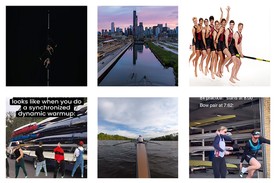


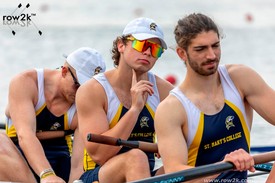
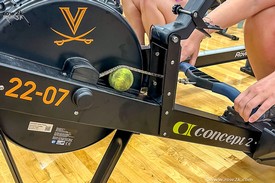
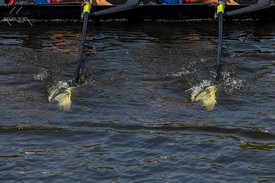
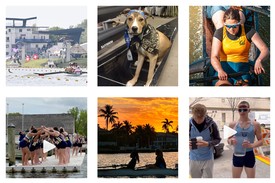
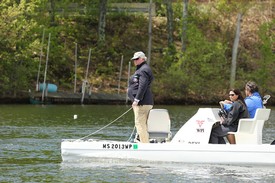






11/10/2023 7:57:17 AM